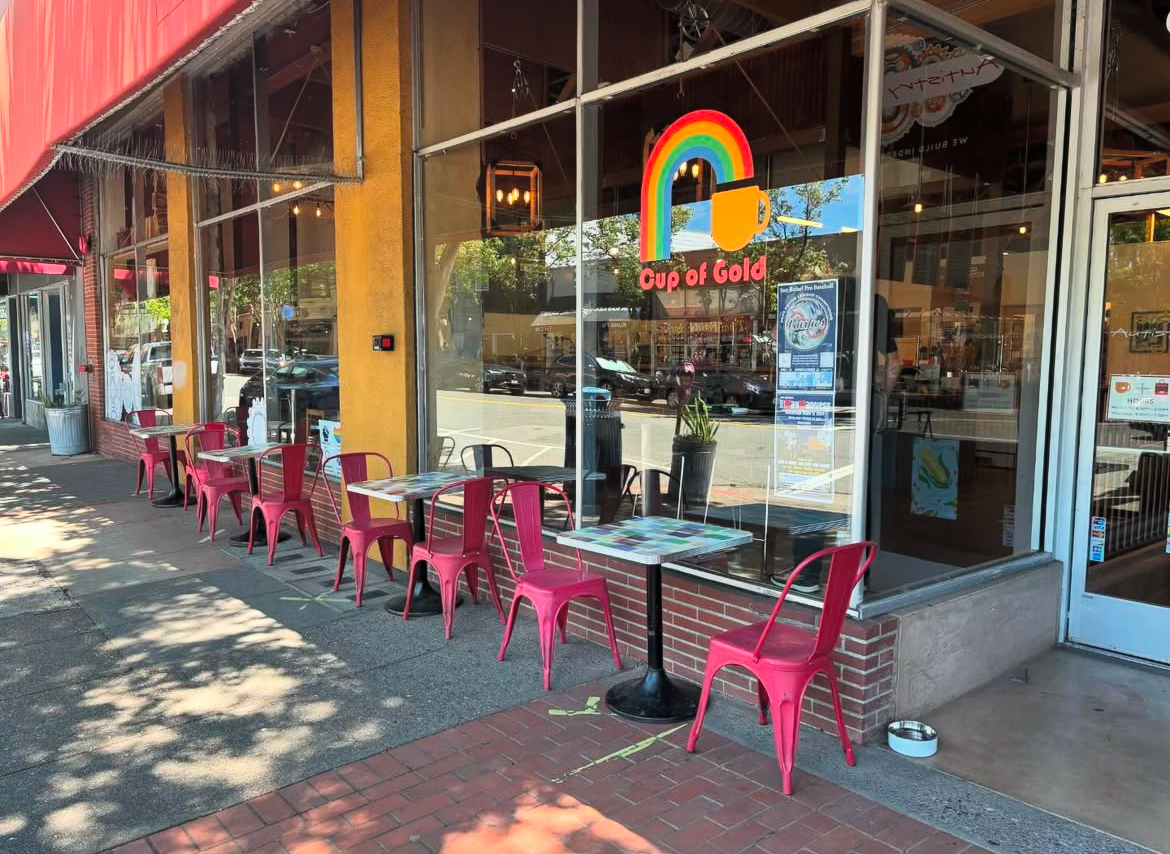Finding Light in Laughter
June 8, 2023
My dad’s lighthearted approach to life has always influenced my perspective. He follows the philosophy that laughter and comedy numb the struggles we face. Yet, I learned that this lightness of being comes with a trade-off. While it makes the bad times less severe, it also diminishes the charm of the good times. This delicate balance shaped my character over time.
Comedy specials never truly captivated me. The predictable jokes feel like mandatory entertainment. The most memorable jokes are the unexpected ones, whether they push the boundaries of social acceptability or come during serious moments. The element of surprise brings down people’s guards and allows for genuine connection. People love to be around someone who can make them laugh, someone who can lighten the mood and break down those pesky social barriers. A shared laugh is a powerful indicator of genuine interest in a conversation.
Speaking, for me, is pure joy. There is nothing sweeter than engaging in a meaningful conversation where I enter with an open mind and come out feeling enlightened. I read a quote years ago and now try to live by it: “Always assume that the person you’re speaking with knows something that you do not.” This mindset keeps me genuinely interested in others and eager to learn from them. I cherish every conversation as an opportunity to unravel hidden knowledge and delve deeper into the thoughts of those I’m speaking with.
With this mindset, I find everyone interesting, eliminating boredom and the tendency to generalize people. I become the floating eye, observing and truly listening, eager to engage with others. I encourage them to talk about themselves, creating a genuine connection. Conversations become a way to talk with people, rather than at them.
However, adopting this perspective was not easy at first. During my childhood, I was reserved and struggled with honest communication. I often felt dejected and honestly believed that social risks were tantamount to a death sentence.
One memory from my elementary school days stands out. I was walking on the field with my close friend Dean, engaging in a hypothetical conversation about an alien war. Suddenly, he stopped me and asked about the worst swear word I knew. At the time, I wasn’t keen to swear, but considering it was just the two of us, I thought on it and whispered “f*ck” into his ear. His reaction was unexpected—he fled as if I had shown him a gun. Looking back, it was a trivial incident, one that I should have laughed off and moved on from. However, that’s not what I did, I allowed it to eat away at me, leading to self-doubt and a sense of fundamental wrongness within me.
Though this incident isn’t one that really changed my character, I’m sure hundreds like it occurred and I realize now that this seemingly insignificant memory carried weight in shaping my future perspective. Over time, I retreated into a shell. Instead of just turning my bitterness inwards, I began resenting my peers in middle school. I envied their ability to effortlessly form friendships, while I couldn’t fathom a world where I could lose friends and still make new ones. Insecurity consumed me.
During those middle school years, I started to appreciate the value of comedy. In elementary school, I had been a boisterous kid, but now I realized that humor was a means of communication. Laughter became the ultimate form of validation—a genuine laugh can’t be faked. It creates vulnerability and puts people at ease, leaving a lasting impact.
In high school, I refined my comedic approach, adapting to the times. I was more than a bit edgy at the time, and if any one of my jokes from back then were recorded I’d lose any chance of a political career. Despite this, all began to work out, friendships were maintained and developed.
Even so, I still struggled to initiate new connections and take social risks. In my freshman year of highschool, an ill-fated prank involving sugar-free gummy bears backfired and tarnished my reputation. My attempts to create new friendships often downright failed, I felt it wasn’t even worth it to make the attempt.
The COVID-19 pandemic further isolated me from the outside world. Locked in my room, staring at a screen for hours, my sanity crumbled. It became clear that I couldn’t survive without a strong social network. Thus, when the classrooms opened once again, I entered junior year with optimism, hoping and expecting change, but I found myself falling further inward. My sense of loneliness only grew, among more friends than ever, I felt trapped in a personality I despised. Even my humor became dry, and I remained isolated.
However, the following summer brought transformation. Through reading and working out, my confidence started to build. In senior year, my priorities shifted. Seeking validation from others became less important as I focused on personal growth. Failure to elicit laughter was no longer a roadblock but merely a minor setback. Poking fun at others and myself became a way to make them feel comfortable, not just cope with my circumstances.
Insecurities still linger, and no doubt that speaking and writing more about this would help further. Nonetheless, comedy has been my anchor throughout life’s storms. Relying on the validation of others only leads to temporary happiness. Instead, I compare myself to who I was yesterday. Comedy has become my rock, a source of light during the darkest times. When all seems lost, I can cling to humor until the sun and the joy it brings returns.






































